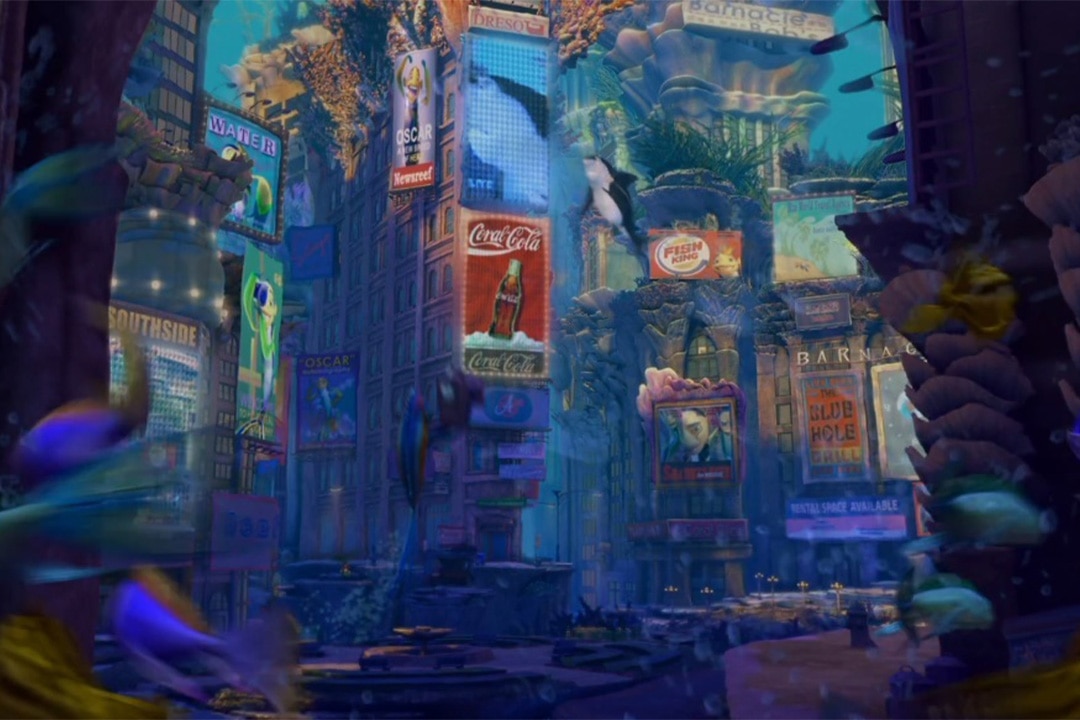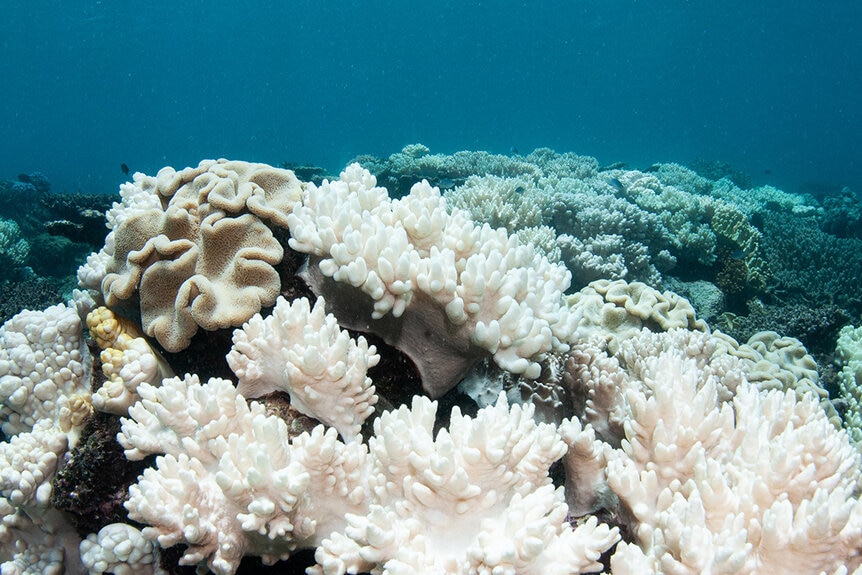Create a free profile to get unlimited access to exclusive videos, sweepstakes, and more!
Good News! Some Corals Show Remarkable Resilience to Climate Change
But we're not off the hook yet.

The 2004 animated comedy Shark Tale (streaming now on Peacock) tells a sordid (but family friendly) tale of organized crime in the deeps of the sea. It takes place at Southside Reef, a bustling underwater community filled with every manner of sea creature. And that makes sense, if you’re going to have a character-based underwater story, it almost has to be at a reef where about a quarter of all ocean life resides.
Sadly, reef ecosystems are also some of the most vulnerable to global climate change. Over the last several decades, average sea surface temperatures have risen at a fairly consistent rate, thanks to humanity’s introduction of excess greenhouse gas emissions. We think a lot about how a warming planet will melt the ice caps and cause sea levels to rise, but warmer waters are dangerous for ocean life even if they’re not rising. Fortunately, a recent study published in the journal Nature Communications demonstrates that some corals are learning to adapt to a warming world.
What’s the Deal with Coral Bleaching?
Corals are animals, but they behave a lot like plants. They are largely static, mounting themselves to the existing reef and adding themselves to it. Some of them actively hunt prey that happens to come too close, but many rely on symbiotic algae. The corals provide a safe haven for algae, inside their bodies, and the algae in turn feeds the coral with excess sugars produced through photosynthesis. The coral and the algae live in perfect balance, each one responsible for the survival of the other.
RELATED: Improving Coral Reef Restoration With 3D Printing
When temperatures get too warm, however, corals get stressed and expel their algae in a process known as bleaching. The algae provide food, but they’re also responsible for the reef’s vibrant colors. Without the algae, the corals become a ghostly shadow of their former selves, not long for this world.
Historically, coral bleaching events have served as a proverbial canary in the oceanic coal mine. Reefs are susceptible to relatively minor temperature fluctuations and, unfortunately, temperature changes are becoming more severe, not less. All of which led researchers to assume that as marine heat waves become more common and more intense, we’d see a corresponding rise in bleaching events. But in some places that isn’t happening. Now, scientists have uncovered a seemingly inherent ability for reefs to adapt to rising temperatures.
Some Reefs Have Increased Their Resistance to Heat
The recent study was led by Liam Lachs, a PhD candidate in Climate Change Ecology and Evolution at Newcastle University, and an international team of colleagues. Together, they studied reefs near the island nation of Palau in the western Pacific.
The area was chosen because it experienced marine heatwaves in 1998, 2010, and 2017, each with their own associated bleaching events. However, researchers noticed that bleaching decreased from one heat wave to the next, and they observed similar phenomena in Australia, Asia, and elsewhere. Next, they gathered 35 years of data on sea surface temperatures and coral bleaching events and plugged that into a simulation.
Their model showed an increase in thermal tolerance of roughly 0.1 degrees Celsius, per decade. Global sea surface temperatures are increasing at an average rate of 0.18 degrees Celsius per decade, so the corals are lagging behind, but they are getting better at dealing with a warming world. Researchers aren’t totally clear on the mechanisms at work, but they’ve got a few ideas.
RELATED: Coral reefs 'sing,' and they change their song when they’re sick
The first is conventional evolution. Over time, as ocean environments change, coral species are evolving to live in the world they’ve got. The next is individual adaptation. Just like how a person can get stronger by exercising, an individual coral can get better at dealing with temperature fluctuations with time and experience. A coral that survived the 1998 heat wave may have been better equipped to deal with subsequent heat waves. Finally, there is reef species turnover. It’s possible that previous heat waves wiped out sensitive species, opening up reef real estate for hardier ones. When the next heat wave hits, the reef does better overall because there is a larger proportion of species who can take the heat.
Whatever the reason, the upshot is fewer corals dying from bleaching than previously predicted. Researchers estimate that if heat tolerance continues to increase at this rate, corals might save themselves from a significant amount of die off, no thanks to us.
That said, the adaptation of reef ecosystems demonstrates that there really isn’t a “point of no return” when it comes to climate change. There is no moment when we should throw in the towel. Every bit of warming we prevent or delay buys time for nature to do its part. The longer we can hold the line and slow down the advance of anthropogenic climate change, the larger the opportunity for plant and animal species to find new ways to survive.
If Shark Tale teaches us anything, it’s that sometimes you have to get out of your comfort zone to survive. Catch it streaming on Peacock, right now!



























